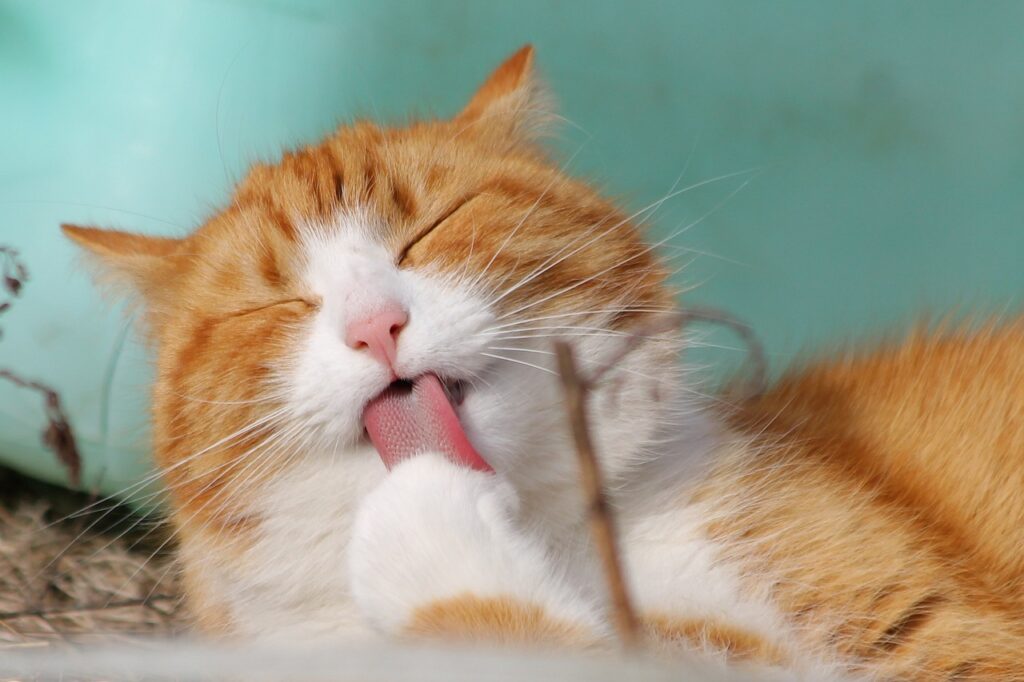Can Cats Eat Ham? – No, They Can’t
In simple terms, no, cats should not eat ham. Ham is a processed meat that can be high in fat and salt, which are not ideal for your cat’s health. While a tiny nibble of ham won’t instantly hurt a cat, it’s not suitable for their diet. Cats are obligate carnivores, which means their bodies are designed to digest and use only animal-based proteins. But the salt, preservatives, and high fat content in ham are not what nature intended for them and could lead to health issues over time.
Can Kittens Eat Ham?
It is especially important for kittens to avoid ham. Kittens need a very specific diet to grow and develop properly, which should be rich in nutrients. Ham does not offer the balanced nutrition that kittens require and the extra salt and additives found in ham could be harmful to their developing bodies. Therefore, feeding ham to kittens is a no-go.
Things to consider when feeding ham to kittens?
Kittens have sensitive digestive systems and need high-quality protein for development, not the processed and sodium-rich offerings found in ham. Introducing such foods can disrupt their growth and potentially cause dehydration or obesity down the line. It’s better to stick with kitten-formulated food that provides complete nutrition.
Nutritional Benefits of Ham for Cats – Why Ham is not good for Cats
Unnecessary Additives
Processed meats like ham are treated with additives and preservatives. While they enhance flavor and shelf-life for humans, they can be harmful to cats over time.
High Salt Content
Cats need some salt in their diet, but the amount in ham is much higher than what is safe for them. Too much salt can lead to serious health issues such as sodium ion poisoning.
Excess Fat
The fat content in ham is higher than what cats require, which can lead to obesity and associated health risks like diabetes and arthritis.
Lack of Necessary Nutrients
Ham does not provide the complete range of nutrients a cat needs; it lacks certain amino acids that are vital for a cat’s health.
The Risk of Disease
Feeding ham regularly can increase the risk of heart disease and other illnesses due to its high-fat content and the presence of potentially harmful additives.
Potential Allergies: Can Cats Be Allergic to Ham?
While it’s not common, cats can develop allergies to any type of food, including ham. An allergic reaction might come from the additives or the meat itself.
Symptoms of Ham Allergies in Cats
- Gastrointestinal upset: Look for symptoms like vomiting or diarrhea after consuming ham.
- Skin irritation: Watch for excessive scratching or signs of discomfort, indicating a possible allergic reaction.
- Respiratory difficulty: In rare cases, a severe allergic reaction can lead to breathing trouble or asthma-like symptoms.
What to Do If Your Cat Shows Symptoms?
- Immediate Diet Change: Remove ham and other potential allergens from their diet and consult your vet.
- Veterinary Visit: Schedule a visit to the vet for allergy testing and a health evaluation.
- Medication: In some cases, your vet may prescribe medication to alleviate symptoms.
Recommended Amount: How Much Ham Can a Cat Consume?
Considering the health risks, it is best for cats not to consume ham at all. Offering even small quantities as a treat on a rare occasion should be done with caution, keeping the portion tiny – a small bite-sized piece is more than enough.
Things to Consider When Feeding Ham to Cats
Always ensure that the ham is plain and unseasoned if you do decide to give your cat a taste. Additionally, be aware of the potential health risks and be prepared to phase out ham from your cat’s diet completely if any adverse effects are observed.
How to Feed Ham to Cats: A Quick Guide
If you choose to treat your cat to ham, do so sparingly and with caution. The ham should be well-cooked, unseasoned, and given in tiny amounts as an infrequent treat rather than a diet staple.
Simple Ham Treat
Cut a tiny piece of plain, cooked ham without the fat or rind. Ensure it’s at room temperature before offering it to your cat.
Ham Mix-up
Add a very small amount of minced ham to your cat’s regular food to enhance the flavor. This should not be a regular practice—just a one-time treat.
Ham Sprinkle
Sprinkle a very tiny bit of ham over your cat’s dry food, using it sparingly. Remember, this is just for an occasional treat, not a dietary habit.
Conclusion
Ham is not a recommended food for cats due to its high salt and fat content. If you do decide to offer your cat a small piece of ham, it should be done rarely and with careful consideration for their overall diet and health. Regular, balanced cat food is the best way to ensure your feline friend stays healthy and happy. Always consult with your veterinarian if you have concerns about your cat’s diet or if they show any signs of food allergies or intolerance.



